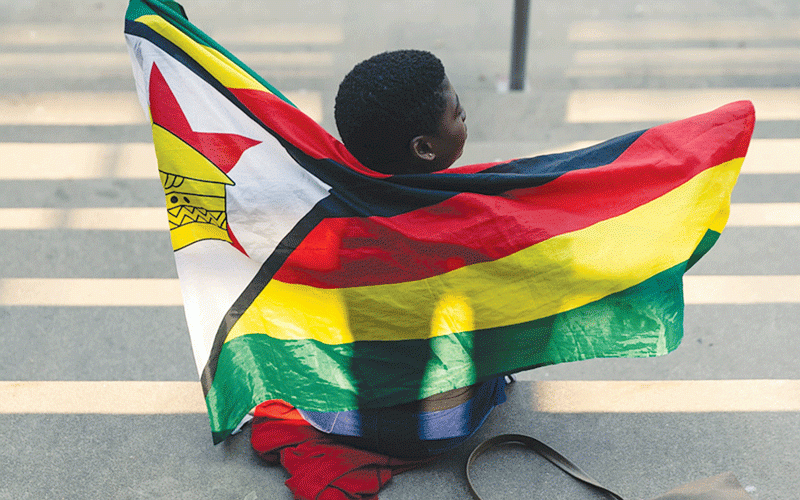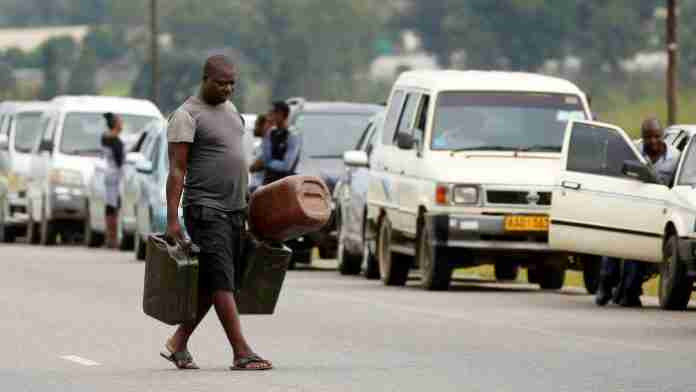
The Zimbabwe African People’s Union, Zapu, was part of the first political movements and parties established in then Rhodesia from the 1950s onwards.
It was constantly banned, but would resuscitate itself under another name.
Zanu broke away from Zapu in 1963, over major disagreements: one of which was the role of armed warfare in the liberation struggle. Zanu vociferously supported armed struggle.
However, Zapu joined with Zanu to form Zanu PF in 1987.
The Patriotic Front, represented this newly formed unity.
Later PF Zapu was established by those who did not support Zanu PF.
In the last general elections more than a hundred new political parties were formed.
Few of them obtained many votes, and after the elections they disappeared.
- Chamisa party defiant after ban
- Village Rhapsody: How Zimbabwe can improve governance
- News in depth: Partisan police force persecutes opposition, shields Zanu PF rogue elements
- Chamisa chilling death threat bishop defiant
Keep Reading
Only one major party, the Movement for Democratic Change, MDC, led by Morgan Tsvangirai, survived, but it split into two parties.
This leaves Zanu PF as the only major party in the country, with PF Zapu retaining a smaller membership. MDC and the CCC enjoyed about 20% of votes in subsequent elections.
This article examines the nature of these political parties. In particular it examines why Zanu PF survived for five decades.
One reason was that Zanu PF managed to transform itself periodically, influenced by the major political challenges in each decade. Thus in 1963, when it first started to challenge Zapu’s dominance, it was because over 60 years of armed struggle had failed, beginning with the Ndebele and Shona “rebellions” of 1896 – 97, which both failed to stop the colonisation of the country by Cecil John Rhodes and his white settlers who managed to cheat the Ndebele leaders into a treaty, and ruthlessly killed all the Shona military leaders.
Rhodes cleverly started by utilising his capitalist company to make a very rapid take over of the country in the 1890s.
He later transformed company rule into British rule, with support from both the South African and British armies as well as governments.
This was a brilliant political takeover in the 1920s.
Zanu established itself as a liberation movement, with only half a dozen freedom fighters.
These fought courageously in Sinoia against a combined Rhodesian and South African force in the 1960s. All six of the freedom fighters were killed.
In the meantime Zapu had established a very strong and well trained team of 600 freedom fighters, under its army, the Zimbabwe People's Revolutionary Army, Zpra.
Unfortunately Zapu and Zpra suffered a serious leadership crisis after 1968, caused by political leaders who had had no military training being responsible for military plans and tactics.
The 1968 incursions into Rhodesia, in which Zpra freedom fighters combined for the first time with the freedom fighters from the African National Congress of South Africa, ANC, were initially very successful, but ended up with the Rhodesian execution of hundreds of Zpra’s best freedom fighters.
This led to military opposition to the then Zapu external leader, James Chikerema.
Long term Zapu leader, Joshua Nkomo remained in captivity by Rhodesians for more than two decades.
The internal disagreement led to a split in the Zapu/Zpra leadership and freedom fighters.
The large Zpra army shrank, many were killed, and a few decided to join with the Zanla security forces, as they were determined to continue the armed struggle. The 1968 Zpra split took some time to recover.
Meanwhile, Zanu/Zanla had managed to increase its military struggle, gaining major victories by 1971, with dominance in North East Rhodesia.
Zanla had been strengthened by being joined by well-trained freedom fighters from Zpra, who had trained in military colleges in the Soviet Union.
Whereas it had struggled to recruit a few hundred freedom fighters before, it suddenly was able to recruit tens of thousands, many of them from secondary schools and universities.
For the first time Zanu/Zanla had well educated university graduates as well as thousands of secondary and university students amongst its membership.
Neighbouring countries, especially Zambia, provided generously for secondary and university education for Zimbabweans, which they were being denied in their homeland.
The entry of such a large new membership led to the strengthening of study groups within Zanu and Zanla. All along the two liberation movements had been fighting for one person one vote.
In addition there was great stress on the return of land, which had been taken and given to white farmers.
Further demands included greater educational access for Africans at primary, secondary and tertiary levels, and the increase of health facilities for Africans, particularly in rural areas which were only serviced by missionaries at the time.
These study groups began to explore issues such as what type and quality of education and health facilities would be required, as well as how the land would be distributed.
These serious concerns were integrated into the independence government policies, such as education, health and a clean water supply for all.
White farmers were allowed to retain their farms, but were encouraged to help their rural neighbours, which they did through their charitable enterprises.
At this time are there any new political policies that are urgently needed?
There is no doubt that every Zimbabwean agrees that policies must be taken to improve the economy, which has remained at the same size, nature and characteristics as before Independence.
Moreover many of the important ways in which the Rhodesian government had supported the growth of the economy have been removed, such as the construction and administration grants given to private schools and health facilities before independence, and continued only for the first two decades of independence.
These grants provided one third of the cost of constructing schools and hospitals, with the local population being responsible for making bricks and construction.
Construction grants used to constitute about 2% of the Ministry of Education budget.
Such grants will do a great deal to improve economic growth in the rural areas as most rural inhabitants remain poor.
A close partnership between the state, provincial, local authorities, communities and parents is absolutely essential for economic growth
Private enterprise has an important role to play in overall economic development.
Unfortunately, although Zimbabwean enterprises have now Africanised, they are the same size as before independence, and actually their agricultural and industrial activities are much lower than before.
Everywhere, whether in capitalist (USA and Britain) or communist countries (China) there is close partnership between the State and the private sector in economic development.
Zimbabwe is seriously deficient in such partnership.
Such partnership should be urgently re-established if we are to succeed economically.
Finally all Zimbabwean political parties have to seriously consider what their detailed policies are on social services such as education and health, and on the economy, such as agriculture, industrialisation and export. What type of education and health do we require for development and at what cost?
What type of economic strategies do we need to succeed in each Province, district, city?
Can we develop more goods to export to our neighbouring countries?
Instead our political parties are still on personality issues, which photographs are more attractive, rather than on what detailed policies are needed for Zimbabwe to succeed.
- Chung was a secondary school teacher in the townships; lecturer in polytechnics and universities; teacher trainer in the liberation struggle; civil servant and United Nations civil servant and Primary and Secondary Education minister.
- These articles are coordinated by Lovemore Kadenge, an independent consultant, managing consultant of Zawale Consultants (Private) Limited, past president of the Zimbabwe Economics Society and past president of the Chartered Governance & Accountancy Institute in Zimbabwe- [email protected] or Mobile No. +263 772 382 852











